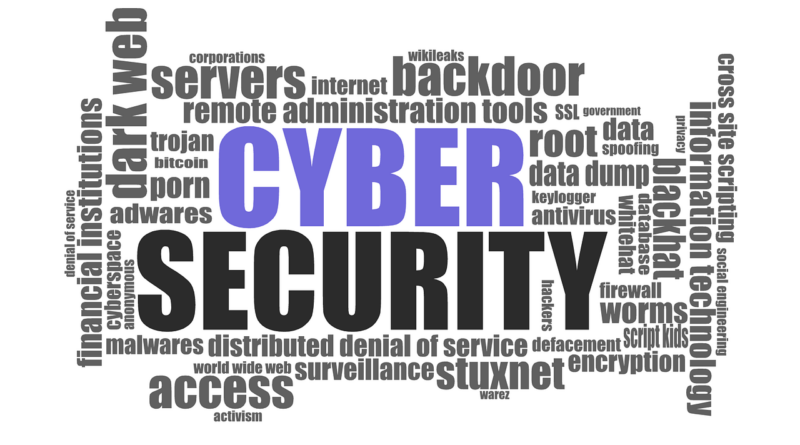Guarding Your Website: Hosting Security against Cyber Threats
Hosting Security: Protecting Your Website from Cyber Threats
The Origin Story
With the rise of the internet, the need for hosting security became apparent. As more businesses and individuals began to establish their online presence, cyber threats posed a significant danger. The origin story of hosting security can be traced back to the early days of the internet when hackers exploited vulnerabilities in websites and servers. As a response, hosting providers began to develop security measures to protect websites from these attacks.
Current Trends and Statistics
In recent years, the frequency and sophistication of cyber attacks have been on the rise. According to a report by Symantec, in 2020 alone, there was a 40% increase in targeted attacks against websites. This indicates that cybercriminals are continually finding new ways to exploit vulnerabilities and compromise website security. Additionally, there has been a rise in distributed denial of service (DDoS) attacks, with a 30% increase reported in the last year. These trends highlight the need for robust hosting security measures to safeguard websites and online assets.
Practical Advice for Hosting Security
To protect your website from cyber threats, there are several practical steps you can take:
- Choose a reputable hosting provider: Do your research and select a hosting provider with a strong track record in security. Look for providers that offer features such as firewalls, malware scanning, and regular security updates.
- Keep your software up to date: Regularly update your website’s software, including the content management system (CMS) and plugins. Outdated software can contain vulnerabilities that hackers can exploit.
- Use strong passwords: Create unique and complex passwords for your website’s admin accounts. Consider using a password manager to securely store and generate passwords.
- Implement SSL encryption: SSL (Secure Sockets Layer) encryption establishes a secure connection between your website and its visitors. This helps protect sensitive information, such as passwords and credit card details, from interception.
- Backup your website regularly: Regularly backup your website and store the backups in a secure location. In the event of a security breach or data loss, backups can help you quickly restore your website.
Future Predictions and Innovations
As technology continues to evolve, so do the tactics and tools used by cybercriminals. Hosting security will need to adapt to these changes to provide effective protection. Some future predictions and upcoming innovations in hosting security include:
- Artificial intelligence and machine learning: AI and ML algorithms can analyze network traffic patterns and detect anomalies indicative of cyber attacks. This can help hosting providers proactively identify and mitigate potential threats.
- Blockchain technology: Blockchain offers decentralized and tamper-proof record-keeping, which can enhance the security of hosting infrastructure. This technology can help prevent domain hijacking and other forms of cyber attacks.
- Zero-trust architecture: Zero-trust architecture assumes that every user and device is potentially compromised. This approach requires continuous authentication and authorization, reducing the risk of unauthorized access to hosting infrastructure.
With the ever-growing threat landscape, website owners must stay vigilant and prioritize hosting security. By understanding the origin, current trends, and practical steps to enhance security, you can protect your online assets from cyber threats.
Final Thoughts on Hosting Security: Protecting Your Website from Cyber Threath
Hosting security is crucial in today’s digital landscape as cyber threats continue to increase in sophistication and frequency. By implementing robust security measures, such as using strong passwords, keeping your software up to date, and conducting regular backups, you can significantly reduce the risk of your website falling victim to an attack.
Investing in a reliable hosting provider that offers advanced security features, such as DDoS protection and web application firewalls, is also essential. Additionally, implementing SSL certificates and using HTTPS protocols can ensure that data transmitted between your website and visitors remains secure.
Remember, no website is completely immune to cyber threats, but by being proactive and prioritizing hosting security, you can minimize the risk and protect your website, your data, and your reputation.
Further Reading and Resources
- Web Hosting Security Best Practices: This comprehensive guide provides in-depth information on various hosting security best practices, including server hardening, network security, and secure coding.
- The Importance of Regular Backups: This resource highlights why regular backups are crucial for hosting security and includes tips on choosing the right backup solution for your website.
- Common Website Vulnerabilities to Watch Out For: Learn about the most common website vulnerabilities, such as cross-site scripting (XSS) and SQL injection, and how to protect your website against them.
- The Role of SSL Certificates in Website Security: Understand the importance of SSL certificates in encrypting data and establishing trust between your website and visitors.
- Harden Your WordPress Website: This resource focuses on securing WordPress websites, providing tips and best practices to protect your WordPress installation from cyber threats.
By exploring these additional resources, you can further enhance your knowledge and take proactive steps to strengthen your website’s hosting security.

